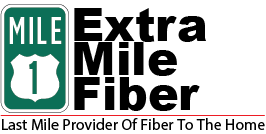There are many options for our communities to become Gigabit Cities. One option is to establish a public-private partnership between the municipal government and a fiber network operator.
According to Smithville Communications and City of Jasper Embark on Gigabit Public-Private Partnership in Telecompetitor, many “government and economic development leaders are quickly equating economic development and community competitiveness with the ability to offer gigabit services.”
Although some communities are exploring ways to bring fiber broadband to their residents, there are still many communities that are not aware of the options available. Some communities, like Chattanooga, Tennessee and Lafayette, Louisiana have built their own networks to provide fiber to homes. These communities were not willing to wait for incumbent service providers to determine the timeline or the location and, instead, listened to their residents. This publicly owned broadband network has typically worked well when the community has their own power utility. Other communities, like Kansas City, Kansas and Austin, Texas have been able to attract private network operators to build fiber to the home. Google Fiber, Verizon FiOS, and AT&T GigaPower are privately owned fiber to the home networks. But another option that fits between these two strategies involves a public-private partnership where the community either solicits bidders through an RFP or works directly with a local service provider to build and share the fiber network. Ownership of the fiber plant can be a sticking point. The Raleigh-Durham area of North Carolina is working with AT&T after their recent RFP, but may also be a Google Fiber city. Now the City of Jasper in Indiana appears to be on the list of cities that will be going gigabit to the home.
This whole issue of next generation broadband and who owns the network is heating up. President Obama has added next generation broadband to his speaking agenda one week prior to his State of the Union speech on 20 January 2015. He is backing the FCC Chief Tom Wheeler in removing state laws that block communities from building their own networks and in reclassifying broadband as a regulated service. Regardless of the outcome, demand for faster broadband is growing.
Ohio communities want next generation broadband, too. Extra Mile Fiber is interested in working with communities that want to have faster broadband and want more broadband competition. Contact us to learn more.
Leigh Sandy is the founder of Extra Mile Fiber and has been building and operating networks connected to the Internet since 1995.
